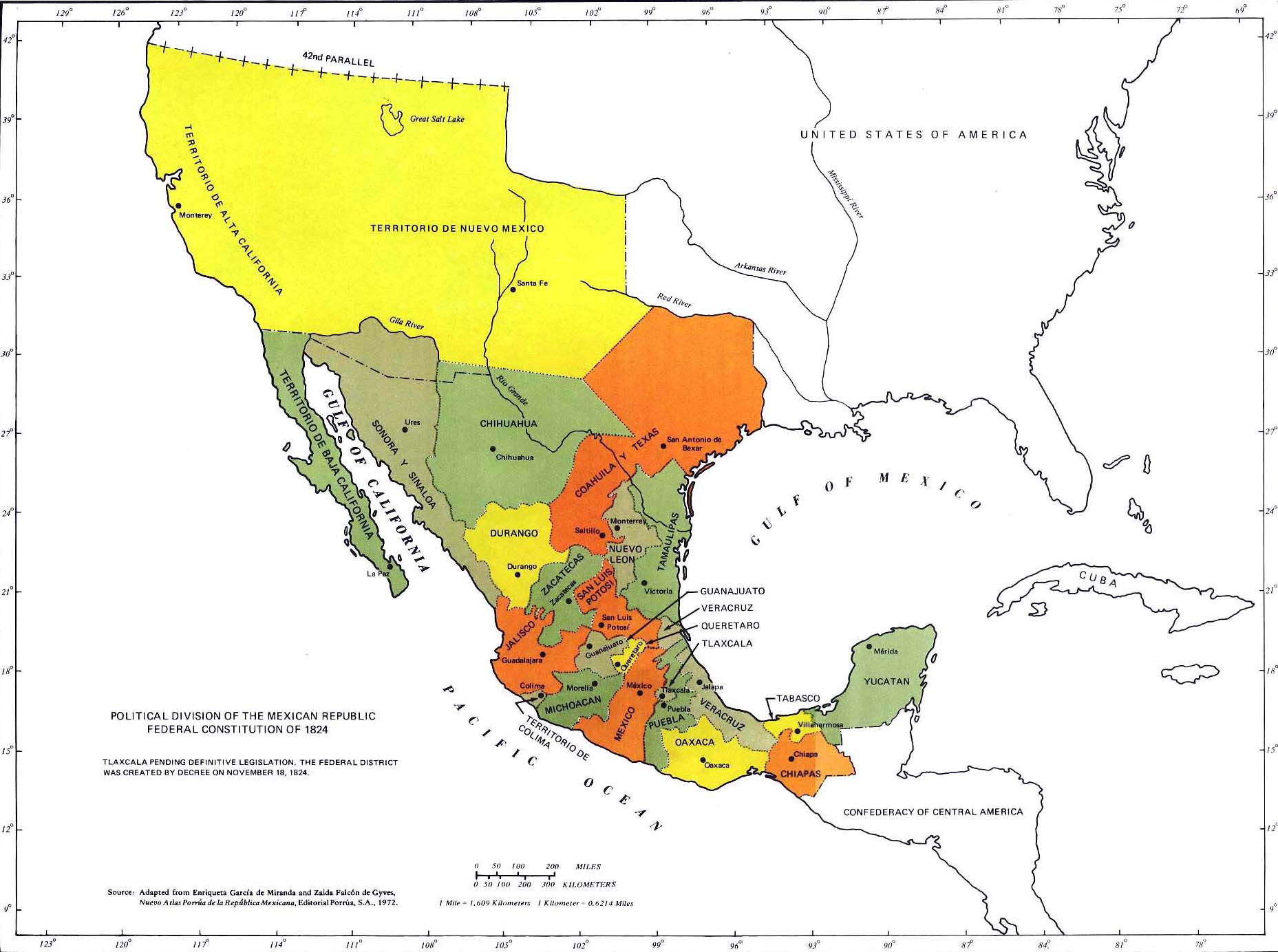Note: full-size version of the above map is here: http://www.emersonkent.com/images/mexico_1824.jpg
We were driving to church one Sunday, and we were talking about Mexico. My son has been thinking a lot about Trump and his goddamn stupid wall idea (I've talked to him a little about the man, but he's also seen Trump's name online a few times). And I mentioned how Mexico used to be a much larger country - all the way up to the southern edge of Oregon.
"But that all changed after the Mexican-American War. And that's a whole different story."
Time was, he would have just moved onto another subject. But this time he turned back to me and asked this:
"I wonder what that story is."
He was curious.
So I told him some of the story. Not all, but some. I told him about how Texans pretended to be happy immigrants to Mexico, just hanging out, enjoying the land, until there were enough to make a scene. And how the Texans declared their rights weren't being honored. And then the American army interceded, and then the war, and then the claiming of California and Arizona and New Mexico as the spoils of war.
He listened intently. He didn't say much. He asked a couple of questions, but mostly he soaked it in like a sponge soaks in water.
He's turning eleven soon. He's right on the cusp of middle school, right in that awkward sweet spot of tweenhood - not a child anymore, but not yet a teenager. He's changing. And one of the ways he's changing is the conversations we have.
His mind is expanding, and his curiosity is growing along with it. He's been so interested in so much lately. I find myself having the most unexpected conversations with him.
- He's interested in Hillary Clinton becoming the first woman president, and he thinks it's odd that we've never had one before. " I wonder why that's never happened before." So I explained to him how it wasn't until recently, relatively speaking, that this country would even accept a female CEO or take a woman politician recently. "Remember, Obama is the first black president," I told him. "that means that after two hundred and thirty something years, our country finally was able to accept that a black man could be the leader. We finally evolved to that point. We might be ready as a country to accept a woman president. We might have finally evolved to that point."
- Slavery. That whole concept perplexes him. A few years ago, he would have kept it simple. When he was little, he would have said something about the lessons on Martin Luther King Day, how black and white people should be treated the same. But he keeps turning over the question in his head, and he asks me sometimes. "I wonder how people were so dumb that they treated people as slaves."
I've approached it a few ways. I've talked to him about how people (white European people) didn't see black people as human. I've talked to him about the economic benefits of slavery, how the South became an economic force on the backs of slave labor.
I've talked to him about the similarities between how slaves were treated then, and the way Trump and his ilk talk about immigrants now. The dehumanization. The casual acceptance of treating some other group as less-than. He listens and thinks and listens some more.
This is my son now. He asks questions. He wants to know more. I can have these deep conversations with him now because he is so obviously interested. He's trying to make sense of the world, of politics, of hatred, of othering. He wants to know the real story.
I'm going to be honest. I love having these conversations with him. I love that he's curious. I love that I can have deeper, more complex discussions with him now. But at the same time, history is messy and heart-breaking, and I know this because he struggles sometimes with it. He is troubled - as he should be - by the sometimes dark, sometimes barbaric, sometimes horrific history of our country.
We were standing on the beach last weekend, talking about slavery (as you do). He said suddenly, "I wish I could go back in time and change the past."
"I know," I told him. "I wish the same thing. But our history is our history. And it's important that we know what happened, and we're honest about it, so that we never make those mistakes again."
"I hope we don't," he said solemnly.
If he is any indication of his generation, we won't.


No comments:
Post a Comment